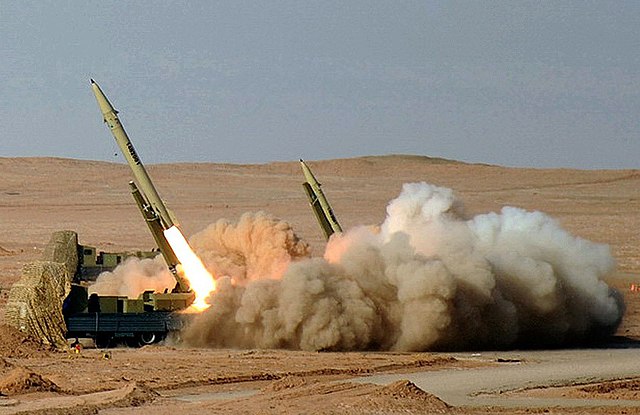By Navy Binning
Photo: Great Prophet VII Maneuvers Iran, Creative Common License
Earlier
this month, Saudi Arabia charged Iran with an “act of war”.
Saudi
Arabia and Iran have been engaged in suppressed aggression and hostility for
decades. After Yemen rebels known as Houthis overthrew the government in 2015,
Saudi forces began an attack against the Houthi forces to restore the internationally
recognized government. Yemen has since been caught in the midst of conflict that has killed over ten thousand
civilians. Saudi air strikes have been the leading cause of civilian
casualties. Iran has openly expressed its support for the Houthi, but it has
never claimed to provide resources or to lead the rebel group.
On
November 4th, a missile was fired from Yemen towards Riyadh, the
capital of Saudi Arabia, and intercepted over the city’s airport. The Houthi
claim the missile attack was retaliation for a Saudi attack that killed
twenty-six people. Saudi Arabia and the United States have since accused Iran
of providing missiles to Yemen rebels, one of which was used in the attack on
Riyadh. Although Saudi Arabia and the United States have previously accused
Iran of supporting the Houthis, there has never been direct proof of the
allegation.
Saudi
Arabia’s declaration that Iran has engaged in an act of war is a bold one and a
particularly foreboding one, following the years of hostility between the two
nations. This begs the question —When does an act of aggression amount to an
“act of war”?
The
US Code defines “act of war” as “any act occurring in the course of (a)
declared war; (b) armed conflict, whether or not war has been declared, between
two or more nations; or (c) armed conflict between military forces of any
origin”.
War
can only occur between states. A conflict between a state and a non-state
actor, such as a rebel group or terrorist organization, cannot constitute war.
The exception is when the non-state actor is sponsored by a state. Saudi Arabia
will need to prove that the Houthis were sponsored by Iran in order to properly
allege that the missile attack was an act of war by Iran.
The
United Nations Charter does not address “act of war”, but it does address the
use of force. Article 2(4) requires members to refrain from “the threat or use
of force against the territorial integrity or political independence of any
state”. The missile attack clearly constitutes a use of force; however, Saudi
Arabia must still show that it was a use of force by a member state.
There
is no settled definition for “act of war”. The term has evolved to become more
political than legal, with many believing that an “act of war” is simply any
act that a state uses to justify a declaration of war.
In
a statement responding to the attack, Saudi Arabia asserted that “the Kingdom
reserves its right to respond to Iran in the appropriate time and manner”. What
Saudi Arabia considers to be an appropriate response remains to be seen.




0 comments:
Post a Comment